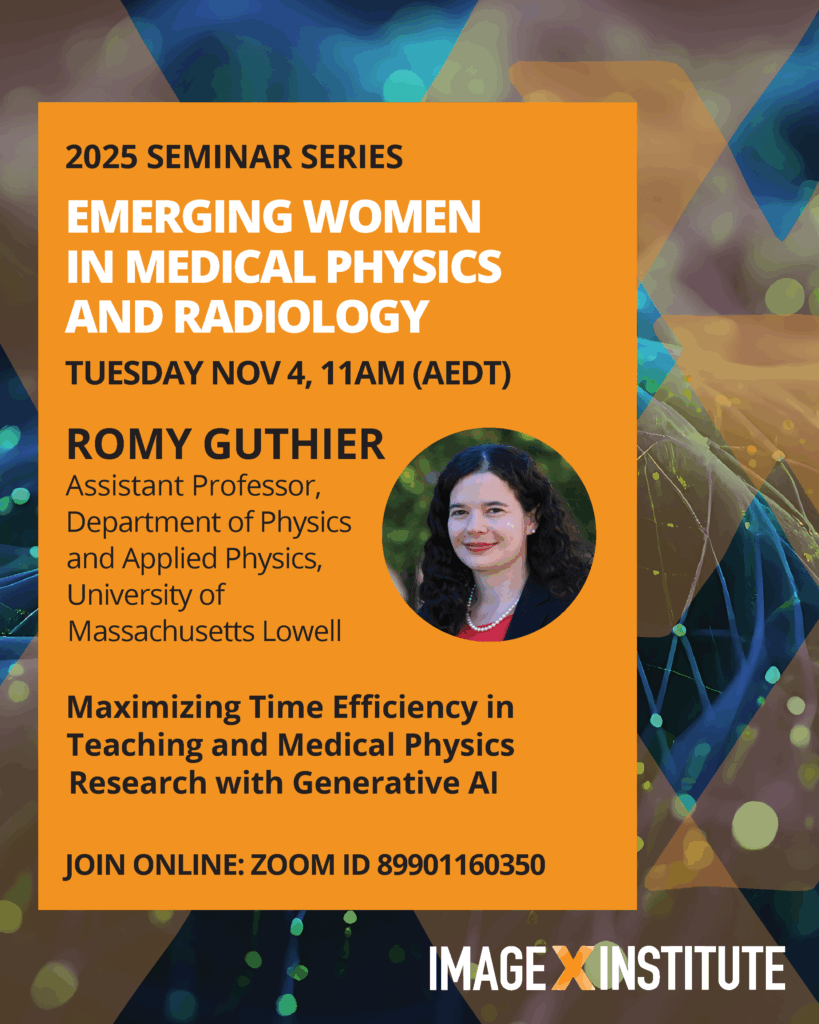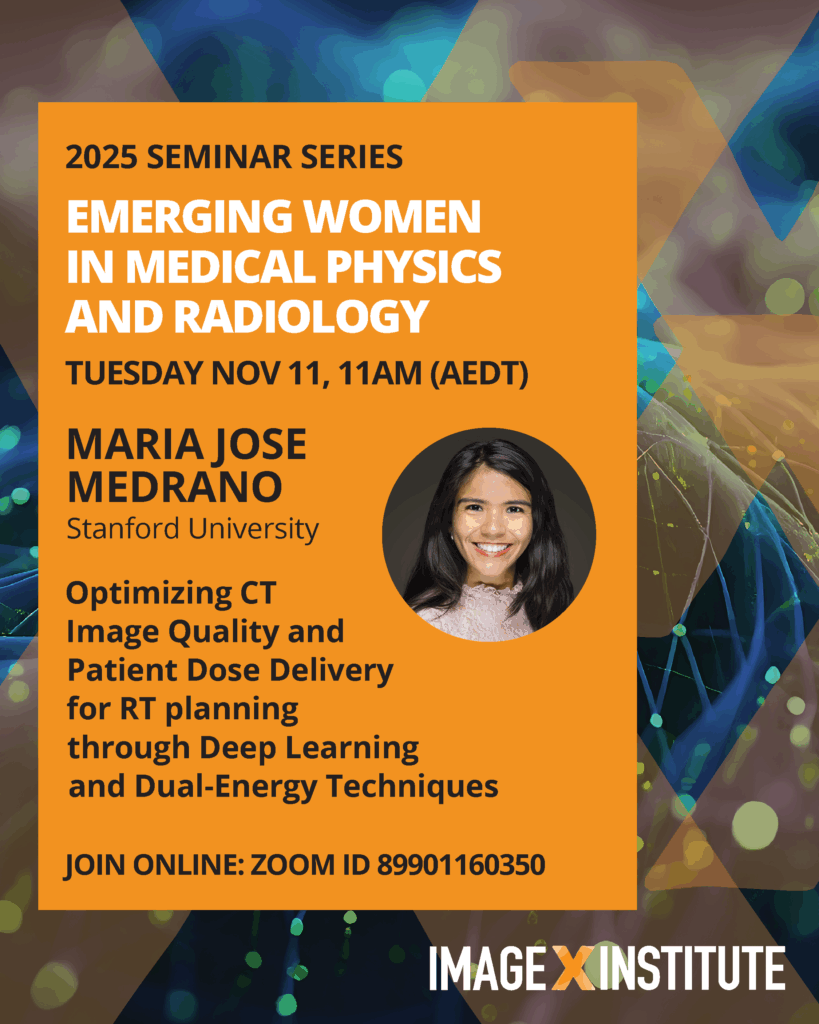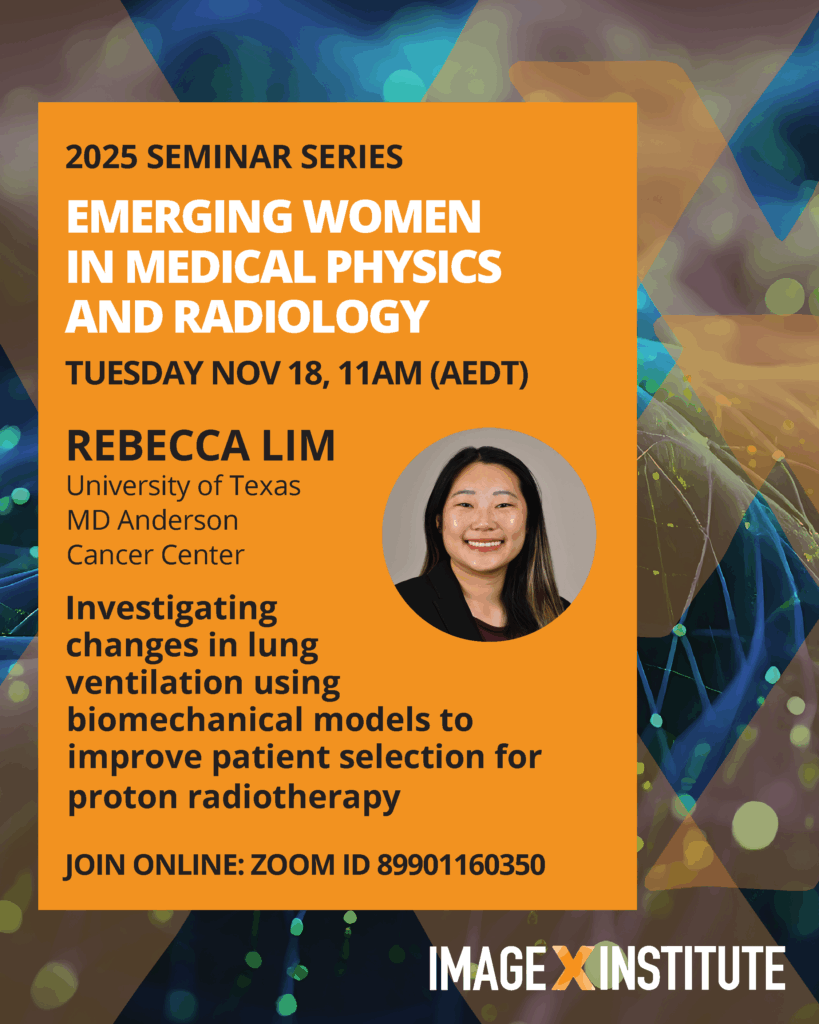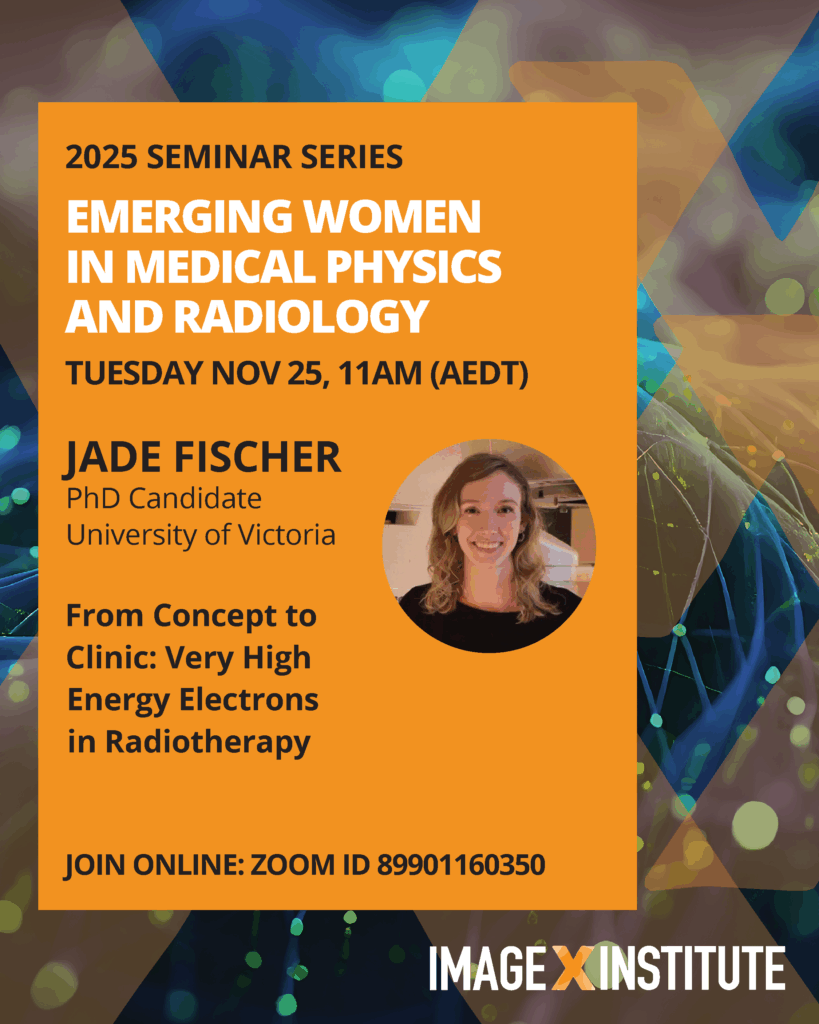Emerging Women in Physics and Radiology Seminar Series 2025
We’re excited to announce the second year of this inspiring seminar series, showcasing the incredible research and diverse perspectives of emerging women leaders in physics and radiology.
Join us Tuesdays at 11am (AEDT) on Zoom (Meeting ID 899 0116 0350) to hear about fascinating work across the field, followed by a live Q&A with each speaker facilitated by Tess Reynolds, curator of the series.
Nov 4, 11:00am – Assistant Professor Romy Guthier, UMass Lowell
Nov 11, 11:00am – Dr Maria Jose Medrano Matamoros, Stanford University
Nov 18, 11:00am – Rebecca Lim, The University of Texas MD Anderson Cancer Center
Nov 25, 11:00am – Jade Fischer, University of Victoria
November 4

Assistant Professor Romy Guthier
Maximizing Time Efficiency in Teaching and Medical Physics Research with Generative AI
Dr. Romy Guthier is an Assistant Professor in the Department of Physics and Applied Physics at the University of Massachusetts Lowell and a member of their CAMPEP-accredited Medical Physics Program. Serving as the Faculty Fellow for AI Integration in Pedagogy at UMass Lowell for the 2024/25 academic year, Romy explores practical and creative applications of generative AI in higher education and their extension into research. In this presentation, Romy will share insights on how generative AI can enhance time efficiency across teaching, research, service, and everyday academic life – freeing time for what truly matters to each of us.
November 11

Maria Jose Medrano Matamoros, PhD
Optimizing CT Image Quality and Patient Dose Delivery for RT planning through Deep Learning and Dual-Energy Techniques
Maria Jose Medrano Matamoros, PhD, is a postdoctoral scholar in the Department of Radiology at Stanford University School of Medicine, where she works in the Wang Group. An electrical engineer and imaging scientist by training, her research focuses on advancing spectral X-ray CT acquisition, reconstruction, and deep learning techniques to optimize image quality and patient dose delivery in radiotherapy and cardiovascular imaging. She completed her PhD in electrical engineering at Washington University in St. Louis, where she developed a novel dual-energy CT reconstruction approach that achieved sub-percent uncertainty in stopping power ratio mapping for proton therapy, significantly reducing proton range uncertainties.
Her current work at Stanford explores the capabilities of photon-counting CT (PCCT) for coronary artery and myocardial scar imaging, including the development of realistic laser-printed phantoms for spectral imaging evaluation. Maria Jose’s research has been supported by multiple fellowships, including the Walton International Scholarship, the Imaging Science Pathway Graduate Student Fellowship, the Stanford Propel Fellowship, and the JumpStart Award.
November 18

Rebecca Lim
Investigating changes in lung ventilation using biomechanical models to improve patient selection for proton radiotherapy
Rebecca is a Ph.D. candidate in the graduate program for medical physics at The University of Texas MD Anderson Cancer Center UTHealth Houston Graduate School of Biomedical Sciences. She earned her BA in physics with double minors in computer science and mathematics from Washington University in St. Louis. She has won third place in both the AAPM John R. Cameron Early Career Investigator Symposium and the ICCR Rising Stars Competition. She was also awarded the Early Career Scholarship Award from the Winter Institute for Medical Physics and has won multiple travel awards to support her conference talks. Her research is focused on calculating lung ventilation from 4DCTs across photon and proton patients with the goal of implementing lung functional information to develop evidence-based guidelines for selecting patients for proton therapy of lung cancer. After completing her Ph.D., she plans to apply for a therapy residency and pursue a career as a clinical physicist with research responsibilities.
November 25

Jade Fischer
From Concept to Clinic: Very High Energy Electrons in Radiotherapy
Jade Fischer is a 4th-year PhD student at the University of Victoria. Her research focuses on the use of very high-energy electrons (VHEE) for FLASH and spatially fractionated radiation therapy. She investigates VHEE radiotherapy through Monte Carlo simulations, treatment planning studies, and experiments performed at CERN. Jade holds a bachelor’s degree in physics from the University of Calgary, where she studied the application of contrast-enhanced MRI in stereotactic body radiation therapy for liver cancer. In the medical physics community, Jade serves as Co-Chair of the Canadian Organization of Medical Physicists (COMP) Student Council, where she leads initiatives to support students’ professional development. She has further contributed to the medical physics community through roles with the Canadian Undergraduate Medical Physics Conference, American Association of Physicists in Medicine (AAPM) Students and Trainees Subcommittee, and COMP Science Committee.

